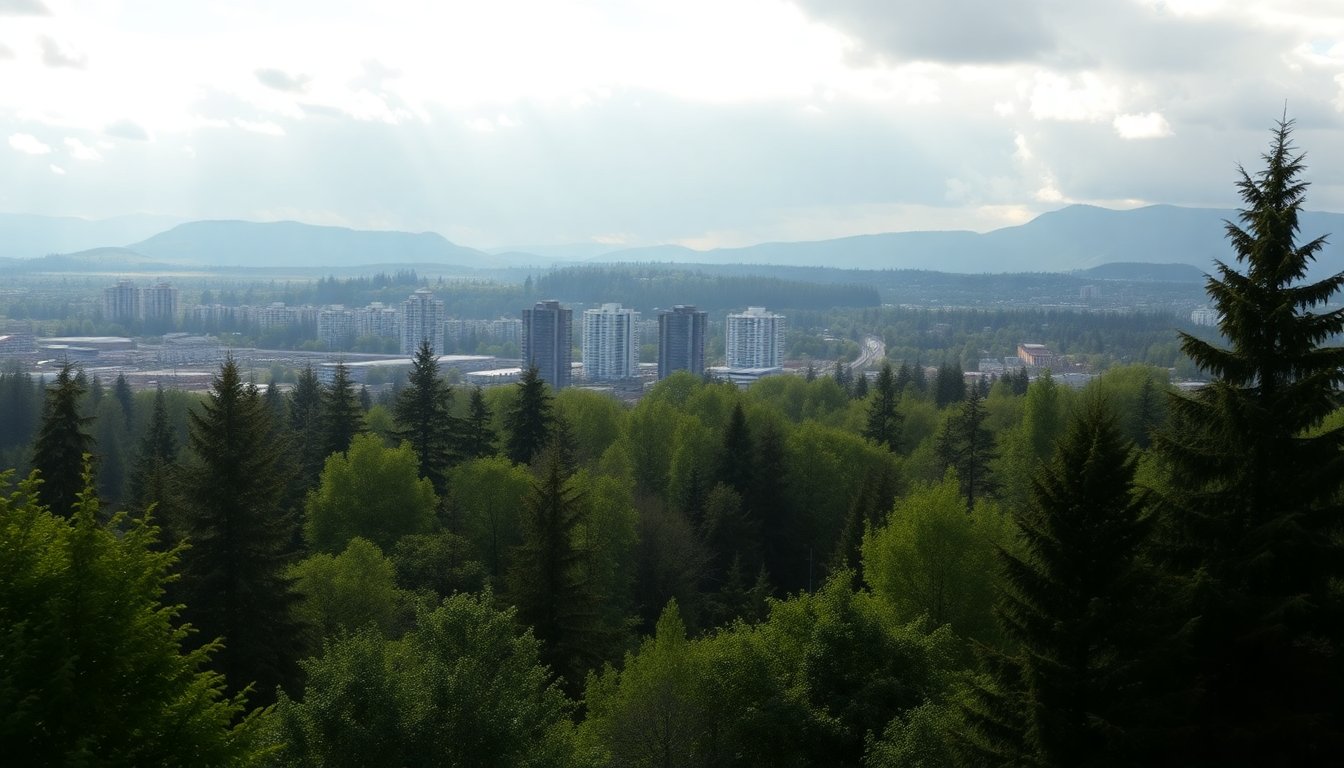Table of Contents
Kwikwetlem First Nation claims land in Metro Vancouver
The landscape of property ownership in Metro Vancouver is under examination as the Kwikwetlem First Nation asserts its claim to land in the municipalities of Port Coquitlam and Coquitlam. This claim, initiated in 2016, aims to establish Aboriginal title over substantial parcels of publicly owned land, including the historic Riverview Hospital site. As the legal process progresses, officials are working to reassure residents and business owners that their private properties are protected.
Overview of the land claim
The Kwikwetlem First Nation has clarified that its land ownership assertion does not encompass private properties. This stance has been reinforced by both the First Nation and local government representatives. According to Robert Janes, the legal representative for Kwikwetlem, the decision to exclude private land from the claim is based on the understanding that private landowners do not share the same responsibilities towards Indigenous rights as governmental entities.
In contrast to other recent Indigenous land claims, such as the Cowichan Nation case in Richmond, which sought compensation for both public and private lands, the Kwikwetlem claim specifically addresses public properties. This distinction has led to heightened inquiries from the community regarding potential impacts on their own properties. In response, Port Coquitlam Mayor Brad West has reassured homeowners and businesses that they can rest easy.
Current status of negotiations
The litigation surrounding the Kwikwetlem land claim is currently in a state of abeyance, indicating a temporary pause as the parties engage in negotiations outside of the courtroom. This approach has garnered support from Niki Sharma, the Attorney General of British Columbia, who advocates for discussions between the First Nation and local authorities over court proceedings.
The ongoing land claims pause does not diminish the significance of the properties involved. These include the 244-acre Riverview site and the 59-acre Colony Farm Psychiatric Hospital. Additionally, the First Nation is asserting rights over surrounding areas, such as the newly named ƛ̓éxətəm Regional Park, which was previously known as Colony Farm Regional Park.
Concerns and community responses
As the land claim situation unfolds, community members are expressing unease about the government’s negotiations and the possible impact on their property rights. John Rustad, leader of the BC Conservative Party, has raised concerns that Premier David Eby may be compromising property rights without properly informing local homeowners.
In response to community concerns, the City of Port Coquitlam has assured residents that there are currently no civil claims affecting private properties. Municipal officials have pledged to vigorously defend public ownership and the rights of private landowners. Mayor West emphasized that the land claim is focused solely on publicly owned areas, ensuring that private property is not impacted by the ongoing litigation.
The broader context of Indigenous land claims
The Kwikwetlem First Nation’s case fits into a larger discussion about Indigenous land rights across British Columbia. Recent court decisions, including one in favor of the Cowichan Nation, have raised important questions regarding the legitimacy of both public and private land titles. The Cowichan ruling found that the city and Crown titles were defective and invalid, setting a precedent that could affect future land claims throughout the province.
Critics have warned that these developments could threaten property values and homeowners’ equity, creating economic uncertainty in affected regions. The relationship between Indigenous rights and property laws has established a complex legal landscape that may discourage investment and reshape land ownership in British Columbia.
Future considerations
As discussions progress, both the Kwikwetlem First Nation and local governments are striving for a resolution that honors the rights and interests of all stakeholders. The First Nation has emphasized its dedication to preserving a spiritual and cultural bond with the land while recognizing the challenges posed by extended legal disputes.
The future of Indigenous land claims will hinge on navigating complex legal, cultural, and economic factors. With the current case on hold, community members are left to monitor developments that could impact their property rights.


